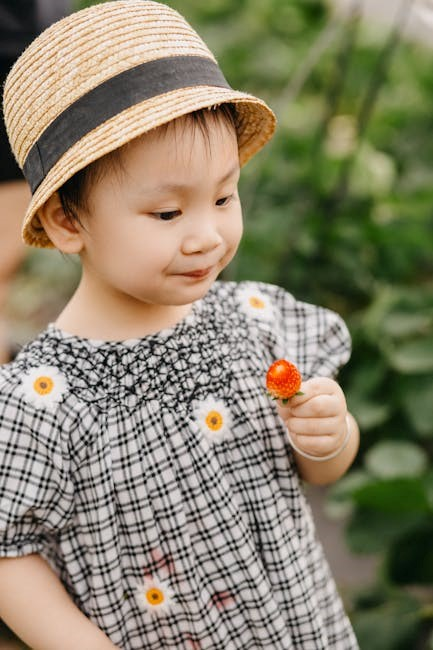Talking with your toddler is a powerful way to nurture their language skills, emotional bonding, and cognitive growth. Engaging in meaningful conversations shapes their understanding of the world, fostering confidence and laying the foundation for lifelong communication skills. Simple, consistent interactions can transform daily moments into opportunities for learning and connection, helping your child thrive developmentally and emotionally.
Why Early Communication Matters
Early communication lays the foundation for language development, emotional intelligence, and social skills. It fosters brain development, helping toddlers connect thoughts and emotions. Positive interactions build trust and confidence, while consistent verbal engagement enhances vocabulary and understanding. Parents play a vital role in shaping these skills, making early conversations a cornerstone of lifelong growth.
Benefits of Engaging Conversations
Engaging conversations with toddlers stimulate language development, expand vocabulary, and enhance listening skills. Interactive dialogue fosters creativity, problem-solving, and social-emotional growth. Meaningful exchanges prepare toddlers for school and future relationships, while strengthening trust and understanding. These interactions also nurture a love for learning, laying a strong foundation for lifelong communication and connection.
Developmental Milestones in Toddler Speech
Toddlers typically begin using recognizable words around 18 months and form simple sentences by age 2. This period marks significant growth in vocabulary and communication skills.
Expected Language Skills by Age
By 18 months, toddlers typically use 20-100 meaningful words, while by 2 years, they begin forming simple sentences like “No ball” or “Me do it.” Early words often label visible objects, such as “bird,” reflecting their growing vocabulary and understanding of the world around them.
Recognizing Signs of Language Delay
If a toddler has fewer than by 18 months or no two-word phrases by 2 years, it may indicate a language delay. Other signs include limited gestures, difficulty following instructions, and lack of progress in communication skills, suggesting the need for professional evaluation and support.

Strategies to Encourage Talking
Engage your toddler through interactive play, responsive communication, and consistent language opportunities. Use simple, clear language and encourage gestures to foster curiosity and confidence in their ability to express themselves effectively.
Parallel Talk: Describing Your Child’s World
Parallel talk involves describing your toddler’s actions and environment to help them connect words with experiences. For example, saying, “You’re building a tall tower with blocks,” as they play. This strategy enriches their vocabulary, encourages curiosity, and creates meaningful associations between language and their daily activities, fostering speech development naturally and effectively.
Reading and Storytelling: Foundational for Language Development
Reading and storytelling are essential for boosting language skills in toddlers. Engaging with books exposes them to new vocabulary, sentence structures, and imaginative scenarios. Interactive storytelling, where you ask questions or point out pictures, encourages active participation, fostering a love for language and setting the stage for future reading and communication abilities.

Creating a Supportive Environment
A supportive environment fosters a sense of security, encouraging toddlers to explore and communicate freely, which is crucial for their language development and emotional growth.
Minimizing Background Noise for Better Listening
Reducing background noise helps toddlers focus on speech, enhancing their ability to understand and learn language. Turn off TVs and radios during conversations to create a quieter environment, making it easier for your child to tune in and process what you’re saying, fostering better listening and language development skills.
Using Play to Stimulate Speech
Play is a natural way to encourage your toddler’s speech development. Engage in activities like pretend play, storytelling, and imaginative games. Describe what your child is doing and ask open-ended questions to spark curiosity and conversation. This playful interaction makes learning to talk fun and engaging, fostering a love for communication and creativity.

Clear and Effective Communication
Speak clearly and use simple language to help your toddler understand and imitate speech. Be consistent, specific, and validating of their feelings to foster confident communication and strong language development.
Speaking Clearly and Using Simple Language
Speaking clearly and using simple language helps toddlers grasp words and sentences. Avoid complex structures and baby talk; instead, use direct, concise phrases. Repeat key words and phrases to reinforce learning. This approach aids in vocabulary expansion and sentence formation, making it easier for your child to mimic and understand effectively.
Labeling and Validating Feelings
Labeling and validating your toddler’s emotions fosters emotional intelligence and trust. Identify their feelings, e.g., “You seem angry,” and acknowledge them, “It’s okay to feel upset.” This helps toddlers connect emotions with words, understand their feelings, and develop healthy ways to express and manage them, strengthening your bond and their confidence.

Interactive Activities to Boost Language Skills
Engage your toddler with activities like singing, storytelling, and pretend play to spark creativity and vocabulary. These interactions create fun, meaningful moments that naturally encourage language development and curiosity.
Singing Songs and Reciting Rhymes
Singing songs and reciting rhymes are powerful tools for language development. They introduce rhythm, timing, and phonological awareness, helping toddlers recognize patterns in language. Simple melodies and repetitive phrases make learning fun and engaging, while actions or gestures add an interactive element that captivates young minds and encourages participation.
These activities also build memory and vocabulary skills, as toddlers repeat words and phrases. Rhymes and songs create a bond between caregiver and child, fostering a love for language and laying a strong foundation for future communication skills. They are easy to incorporate into daily routines, making learning a joyful experience.
Asking Open-Ended Questions
Asking open-ended questions encourages toddlers to think creatively and express their thoughts. Instead of yes/no questions, use prompts like “What do you think will happen?” or “How did that make you feel?” This stimulates language development and fosters critical thinking, helping your child articulate ideas and feelings in a supportive environment.
Consistency and patience are key to fostering your toddler’s language skills. Positive interactions and playful learning create a nurturing environment for their development and confidence.
Consistency and Patience in Language Development
Consistency and patience are crucial for fostering a toddler’s language growth. Regular, repetitive interactions create a supportive environment, helping your child build confidence and skills. By maintaining positive attention and responding thoughtfully, you guide their development, ensuring steady progress in communication abilities.
Talking with your toddler stimulates their brain development, strengthens your bond, and lays the groundwork for lifelong communication skills. This guide offers practical tips to support their verbal growth through interactive play and storytelling.
Early communication lays the foundation for language development, emotional bonding, and cognitive growth. Engaging with toddlers through talk stimulates brain development, enhances vocabulary, and fosters social-emotional skills. Meaningful interactions during these formative years set the stage for confident communication, strong relationships, and future academic success, making it a critical investment in their future.
Engaging conversations with toddlers boost vocabulary, listening skills, and creativity. They encourage empathy, self-expression, and problem-solving abilities, while strengthening the parent-child bond. These interactions also enhance confidence and curiosity, providing a strong foundation for social and academic success, and fostering a lifelong love for learning and communication.
Toddlers typically begin using recognisable words by 18 months and form short sentences by age two, marking significant progress in language development and communication skills naturally.
By 18 months, toddlers often use 20-100 meaningful words, while by 2 years, they begin forming short sentences of 2-. This progression reflects their growing ability to communicate effectively, laying the groundwork for more complex language skills as they develop.
Signs of potential language delay include limited vocabulary, difficulty combining words, or no clear progress in communication by 2-3 years. If a toddler shows few gestures, struggles to follow simple instructions, or doesn’t engage in meaningful conversations, it may indicate a need for professional assessment and support.
Engage your toddler through playful interactions, descriptive conversations, and shared activities. Use techniques like parallel talk, reading, and singing to create opportunities for language exploration and development naturally.
Parallel talk involves narrating your toddler’s actions and surroundings, helping them connect words with experiences. For example, “You’re building a tower with blocks,” or “The dog is barking.” This technique enriches their vocabulary, encourages curiosity, and provides real-time language learning, making everyday moments educational and engaging for their development.
Reading and storytelling are cornerstone activities that foster language growth and creativity in toddlers. By reading aloud and discussing stories, you expose your child to new vocabulary, sentence structures, and imaginative concepts. Engaging techniques like expressive voices and open-ended questions can captivate your child, encouraging participation and a lifelong love for communication.
Creating a supportive environment involves minimizing distractions, encouraging play, and fostering a calm, engaging space. This helps your toddler focus, explore, and develop language skills naturally through interaction and exploration.
Reducing background noise helps toddlers focus on speech, improving their listening and language skills. Turn off TVs and radios during interactions to create a calm environment. This clarity allows your child to better understand and mimic sounds, fostering effective communication and brain development.
Play is a natural way to encourage speech in toddlers. Engage in imaginative games, describe actions, and use playful language to spark curiosity. Activities like pretend play, counting, and storytelling create opportunities for verbal interaction, making learning fun and fostering a love for communication and creativity in your child.
Clear communication involves speaking slowly, using simple language, and being specific. This helps your toddler understand and develop language skills effectively through consistent, meaningful interactions.
Speaking clearly and using simple language helps toddlers grasp new words and concepts. Avoid baby talk and complex sentences. Instead, use short phrases and enunciate words to model clear speech. This encourages imitation and builds their vocabulary effectively, making learning easier and more engaging for young minds.
Labeling your toddler’s emotions helps them understand and manage feelings. Say, “You seem angry,” or “I can see you’re excited.” Validating emotions builds emotional intelligence and trust, teaching your child to express themselves clearly. This encourages open communication and fosters empathy, while helping them develop self-awareness and confidence in sharing their feelings.
Engage your toddler with singing, rhymes, and playful conversations. These activities foster vocabulary growth, listening skills, and creativity, making language learning fun and meaningful for young children.
Singing songs and reciting rhymes with your toddler is a playful way to boost language skills. Melodies and rhythms help children remember words, while repetition enhances vocabulary and phonological awareness. Engaging in these activities fosters a love for language, making learning fun and interactive, and laying a strong foundation for future communication.
Asking open-ended questions encourages your toddler to share thoughts and feelings, fostering language development. Questions like “What happened today?” or “How did that make you feel?” spark creativity and curiosity, helping your child think critically and express themselves. This approach builds confidence and enhances their ability to articulate ideas clearly.
Consistency and patience are key to fostering your toddler’s language development. Engage through play, celebrate progress, and create a nurturing environment for their growth.
Consistency and patience are vital for nurturing your toddler’s language skills. Daily conversations, playful interactions, and celebrating small milestones foster confidence and curiosity. Be present, responsive, and supportive, allowing your child to absorb and explore language at their own pace, building a strong foundation for lifelong communication.